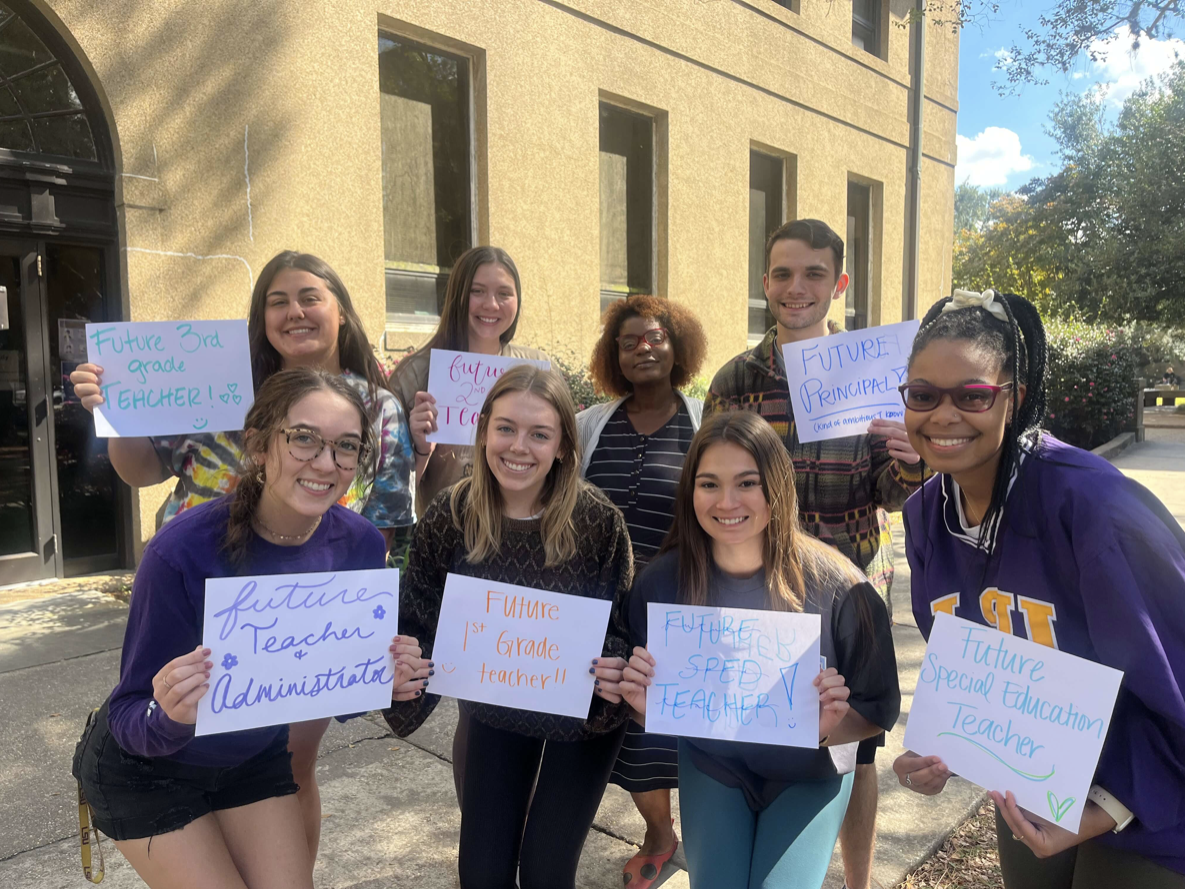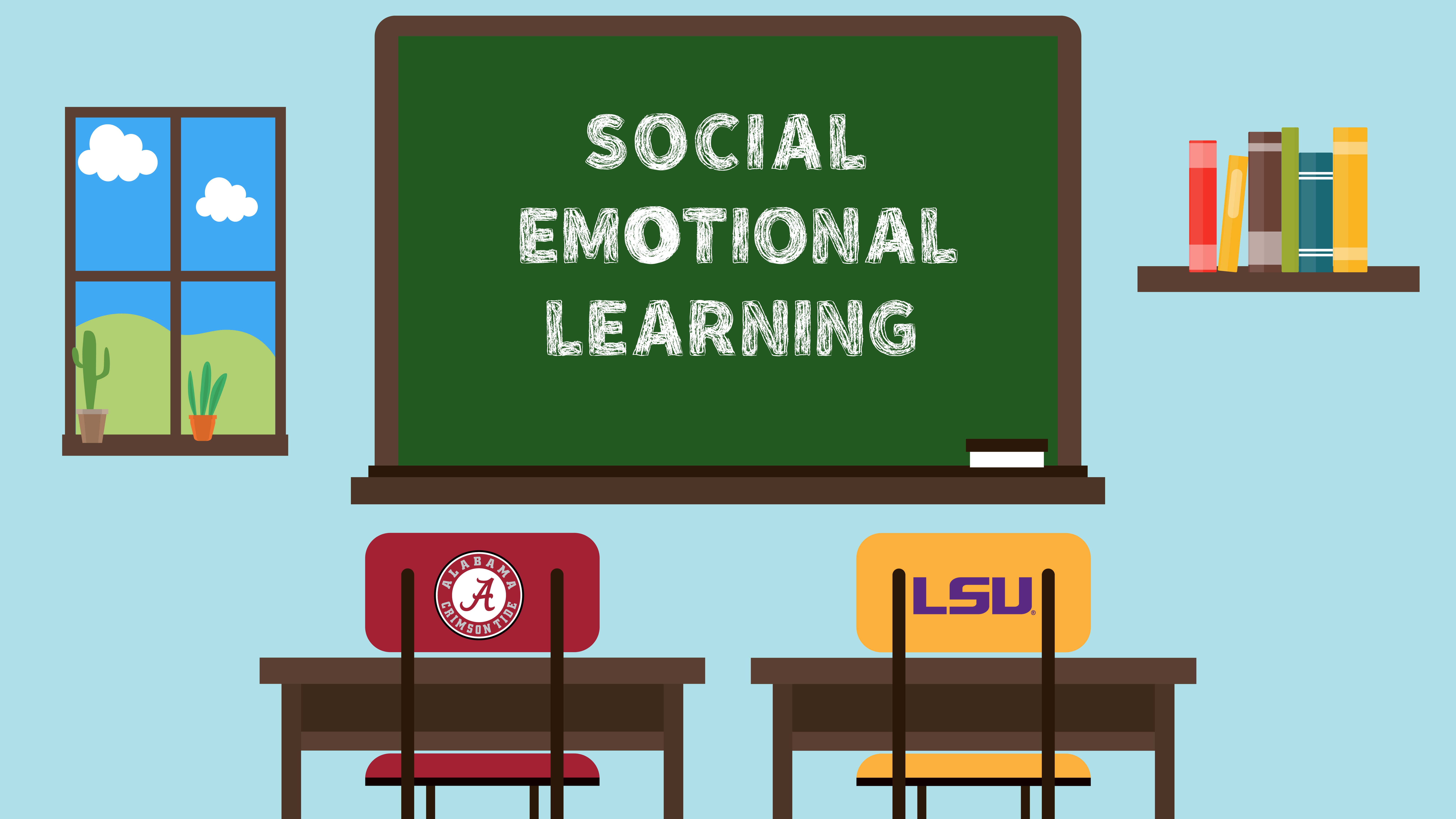Education professors from LSU and the University of Alabama are partnering to help future teachers understand the behavior of children with a social-emotional learning curriculum, according to Paul Mooney, a professor at LSU’s School of Education.
Mooney and Greg Benner, a professor at the University of Alabama’s College of Education, are working together to give LSU and University of Alabama students access to a social-emotional learning curriculum and Social Emotional Learning Study Group (SELSG+) materials for their research.
According to Panorama Education, the company behind the program, social-emotional learning is a process in which people obtain the knowledge, skills and attitudes to create healthy identities, manage their emotions, achieve personal and collective goals, feel and show empathy for others, establish supportive relationships and make responsible and caring decisions.
SELGC+ is described as a complete guide for teachers on how to use social-emotional learning toward students, specifically for kindergarten to third-grade students.
According to Panorama, a social-emotional learning curriculum like SELSG+ providers specialize in delivering comprehensive, evidence-based programs that produce positive social, emotional and academic outcomes for students.
Benner created the SELGC+ because educators don’t get enough training on how to help youth with mental health concerns.
“[Educators] struggle to support all the behavioral health challenges they see from youth,” Benner said.
Within the SELGC+, Benner added seven core behavioral skills for children to follow. These include asking for help, following directions, doing the best they can, following the rules, working out strong feelings and getting along with one another.
According to Benner, the challenge of giving each child the help they need is what SELGC+ is designed to overcome.
“I want to give future educators the information to support the social and emotional needs of each child,” Benner said.
Mooney, who has collaborated with Benner on previous projects regarding social-emotional learning, said that Benner reached out to him and LSU to inquire if the university wanted to participate in the social-emotional learning and SELGC+ curriculum.
At the beginning of the 2022 semester, Mooney agreed, and he worked to integrate the social-emotional learning curriculum into Consultation, Collaboration and Co-teaching, a special education teaching course.
According to Mooney, Consultation, Collaboration and Co-teaching students use social-emotional learning, specifically the SELGC+ materials, to understand the behavior within adolescents. He said the materials teach students within the class how to assist children with cooperating in school settings.
Regarding corporal punishment, in which disciplinary measures are acted upon a child after misbehaving, Mooney said that social-emotional learning will reduce the need for teachers to use physical punishment.
According to the American Academy of Child and Adolescent Psychology, corporal punishment is legal in 19 states, including Alabama and Louisiana.
“Hopefully the need for reactive, punitive types of punishments in the classroom will go down because of social-emotional learning implementation,” Mooney said.
While the two universities collide in sports, Mooney said that combining LSU and the University of Alabama’s resources help address children’s emotional needs.
“When it comes to working with students with disabilities and students who are at risk for failure, there’s no reason for us to be competitors,” Mooney said. “There’s a reason for us to be collaborators.”
Elementary and special education junior Cate Sherman said that though the SELGC+ material, she has learned how to promote expectations of behavior in the classroom.
“A lot of teachers come in and they have an idea of how they want to bring expectations of behavior into the classroom,” Sherman said. “There is no way to do it correctly without having guiding material that will direct you into making an effective behavioral plan.”
Sherman said that utilizing SELGC+ lessens the need for yelling and hitting students in the classroom, giving children an outlet to express themselves.
“[Future teachers] are teaching the next generation,” Sherman said. “You have to have a passion for that and [social-emotional learning] helps teachers and children understand how to be respectful to each other.”
Sherman said that the elementary schools where they implement social-emotional learning materials have a 95% poverty rate among students
“Some of these children have their only meal at school,” Sherman said. “They have to take care of themselves at a young age. If they can’t be a kid at home, they are more likely to act out during school.”
Sherman said that the social-emotional learning framework allows teachers to respect the student while treating them like a child, which some students don’t receive at home.
Social-emotional learning helps teachers find the background behind students’ behaviors, elementary and special education junior Megan McGinnis said.
“You don’t know what any of the children are going through in their home life,” McGinnis said. “[Social emotional learning] looks into the emotional aspect of children instead of the academic aspect of the child’s life.”
While the materials assist teachers, elementary and special education junior Ahijah Lathan said that learning the SELGC+ material will benefit the children more than the teacher. She said that each child who adapts to social-emotional learning can understand their behavior and control it.
“These materials help us help them,” Lathan said.
LSU, University of Alabama partner to provide future teachers access to social-emotional learning material
November 20, 2022
Students in Consultation, Collaboration and Co-teaching pictured outside of Peabody Hall holding papers that read their future goals.
Back row: (Left to Right) Megan McGinnis, Sydney Rhodes, Professor Valentina Rideaux, Collin Crousillac
Front row: (Left to Right) Cate Sherman, Stephanie Fairburn, Aijah Lathan






